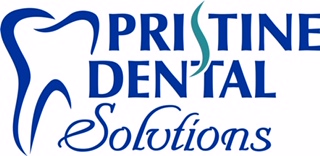
Pretty much everyone knows how important it is to have routine dental cleanings to help prevent both cavities and gum disease. But what many people don’t know is that there are actually two types of cleanings — the routine cleaning you have (or should have) every six months and a much deeper cleaning that’s usually reserved for people with moderate to advanced gum disease. Even if you haven’t heard of a deep dental cleaning before, you might have heard it called by its “other” name — root planing and scaling. That’s a little more descriptive, but it still doesn’t describe what a deep cleaning does, or when and why it’s performed. Here’s how to tell the difference between the two types of cleaning and how to know which one you’re going to need.
Dental cleanings: What they are and how they’re done
Both routine and deep dental cleanings have one primary goal: To get rid of plaque and tartar deposits that can cause gum disease and other oral health problems. But beyond that, the two procedures are a lot different.
Routine dental cleanings
This is the type of cleaning you get when you visit Rifkin Dental for your regular six-month checkup. During a routine dental cleaning, your hygienist uses special tools to remove sticky plaque and hard tartar deposits from the surfaces of your teeth above your gums. These cleanings are very important for preventing gum disease and even for treating very mild forms of the disease (called gingivitis).
Routine cleanings are also a good time to ask your hygienist about areas of your mouth where your brushing and flossing routines need a bit of help, and your hygienist can also make sure you’re performing both those tasks correctly so you’re getting rid of as much plaque and tartar during your home routine as possible. In addition to preventing gum disease, having your teeth cleaned every six months also helps keep bad breath at bay. Routine cleanings are usually combined with a regular checkup to allow the dentist a chance to examine your teeth, perform an oral cancer screening and take X-rays if needed.
Deep dental cleanings
Like the name implies, deep dental cleanings provide your teeth with a deep cleaning, using special techniques to get rid of plaque, tartar and bacteria below the gum line and all the way down to your tooth roots. The bacteria that cause gum disease love to hide in hard tartar deposits on the surfaces of your teeth that are protected by your gums. As the bacteria multiply and grow, they release toxins that irritate your gums.
Over time, your gums start to pull away from the surfaces of your teeth, creating tiny pockets that allow the bacteria to migrate all the way down to the roots. Infections around the lower part
